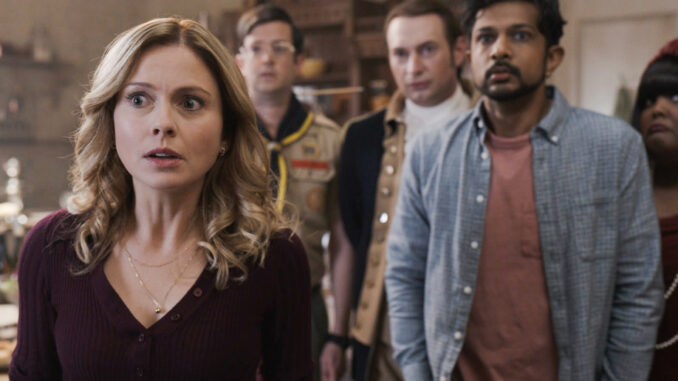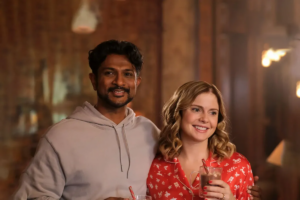
Ghosts has won acclaim for its blend of hilarious antics and heartfelt storytelling, and Rebecca Wisocky’s Hetty Woodstone embodies this balance perfectly. In a candid interview, Wisocky shared insights into the show’s ability to tackle dark themes with levity and grace.
The Dual Nature of Hetty
As a spirit from the Gilded Age, Hetty often provides comedic relief through her exaggerated disdain for modern sensibilities. But Wisocky noted that these humorous moments are often rooted in deeper struggles:
- Yearning for Relevance: Hetty’s pompous attitude stems from a fear of being forgotten.
- Conflict and Growth: Her interactions with the other ghosts force her to confront her prejudices, leading to both comedic clashes and emotional breakthroughs.
The Role of Humor in Tackling Dark Themes
Wisocky explained that Ghosts uses humor not to overshadow its darker elements but to highlight them:

“The show is about death, which is inherently heavy. Humor allows us to approach that subject in a way that’s humanizing and even uplifting.”
Examples include:
- Regret and Redemption: Many episodes focus on the ghosts’ unfinished business, blending comedy with poignant explorations of regret.
- Shared Humanity: The absurd situations the ghosts find themselves in—like arguing over TV privileges—highlight their lingering humanity.
Hetty as a Microcosm of the Show
Hetty’s arc mirrors the show’s broader themes of transformation and connection. Wisocky highlighted moments where Hetty’s vulnerability shines through, such as her attempts to reconnect with her family and her evolving friendships with the other ghosts.
Why This Balance Matters
According to Wisocky, the combination of humor and depth is what makes Ghosts resonate with viewers:
“Laughter opens the door for empathy. You come for the comedy, but you stay for the heart.”
By blending these elements, Ghosts continues to deliver a unique and unforgettable exploration of life, death, and everything in between.
